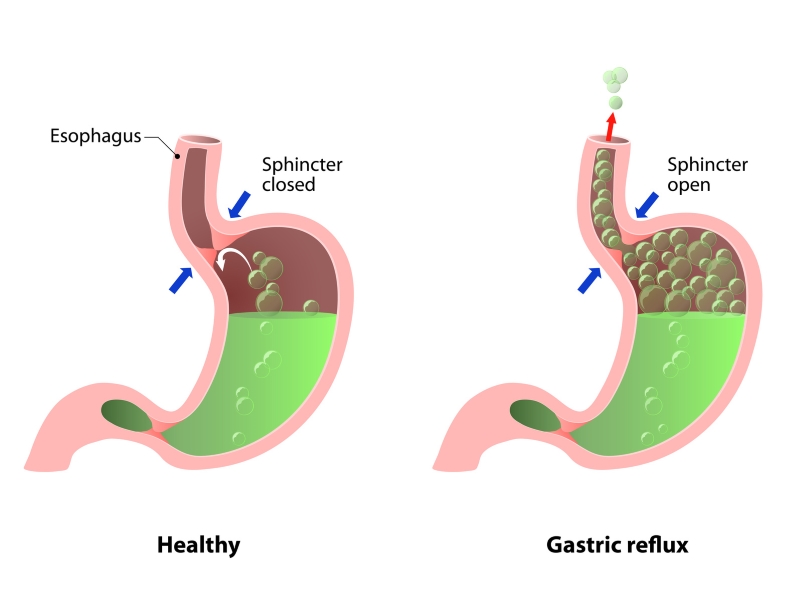
Tis’ the season to be jolly, but for many people, living with gastroesophageal reflux ( GERD) can make it hard to join in on the holiday cheer. With the holidays comes holiday food and many of these foods can cause GERD symptoms to flare up. If you are living with GERD, then you know just how difficult a time of year the holidays can be. Temptation is everywhere. It is a time when overindulgence is encouraged and it can be extremely hard to maintain self-control.
Before I give you some tips on how to survive the holidays with GERD, let’s briefly talk about the disease itself. According to Healthline, 15%-30% of the U.S. population has GERD according to a review from 2014. GERD occurs when stomach acid frequently flows back into the tube connecting your mouth and stomach ( esophagus ). This backwash ( acid reflux ) can irritate the lining of your esophagus.
Many people experience acid reflux from time to time. If you feel a burning sensation in your chest more than twice a week, you might have GERD. The condition is a more serious and long-lasting form of acid reflux.
Most people can manage the discomfort of GERD with lifestyle changes and over-the-counter medications, but some people with GERD may need stronger meds or surgery to ease symptoms.
Symptoms of GERD
If you have nighttime acid reflux, you might experience:
Risk Factors
Factors that can aggravate acid reflux include:
Diagnosis
Your doctor might be able to diagnose GERD based on a physical exam and history of your signs and symptoms. To confirm a diagnosis of GERD, or to check for complications, one of the more common procedures is through and upper endoscopy ( EGD ). This procedure involves a doctor inserting a thin, flexible tube equipped with a light and camera ( endoscope ) down your throat, under light sedation, to examine the inside of your esophagus and stomach. Biopsies can also be taken during the procedure. Upper GI series x-rays are another way to diagnose GERD.
Treatment
There are also a number of prescription-strength medications that may be necessary for more severe cases. If GERD cannot be controlled with medications and you wish to avoid long-term medications, there are surgical options available as well.
Holiday foods can be a treat, however, a lot of them can be bad news for people with GERD. According to WebMD, here are 9 hints to help get you through the holiday temptations.
Hopefully these tips can help you take control of your GERD symptoms over the holidays. Don’t be afraid to say “no”. Now that you know what to do, it’s time to go out and enjoy the season without pain. Happy, Happy Holidays to all!!!
Sources: www.mayoclinic.org, www.healthline.com, www.webMD.com